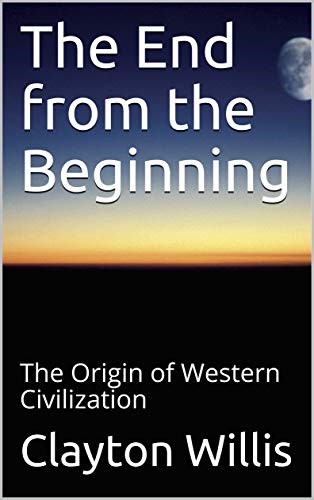Who Were the Magi?

(American, 20th Century)
Before December 25th each year, some Christian preachers and teachers will again tell the simple story of the “Magi”, the “wise men from the East”, who “followed a star” and knew approximately when and where Jesus would be born and came to Palestine seeking Him.
Do they ever tell you who those men were or where they came from or how they
knew when Jesus would be born? Most don’t know, but because of the research for
my book “The End from the Beginning (The Origin of Western
Civilization)” I can share that knowledge with you.
1 After Jesus was born in Bethlehem in Judea, during the time of King Herod, Magi from the east came to Jerusalem 2 and asked, “Where is the one who has been born king of the Jews? We saw his star in the east and have come to worship him.” Matthew 2:1–2 (NIV84)
Who were the Magi? The “Magi” were government officials who advised the King of the Parthian Empire – the chief rival of the Roman Empire from 250 BC to 225 AD. Some later traditions refer to these Magi as “kings” because all the kings of the Persian Empire and several kings of the Parthian Empire came from the ranks of the Magi.
The Parthian Empire was located “beyond the Euphrates” in the areas today known
as Iran, Iraq, Syria, Armenia, Georgia, Azerbaijan etc.
How did they know when Jesus would be born? They were almost certainly
Israelites (not Jews, but descendants of the 10 tribes of the kingdom of Israel
taken captive and moved to that area in 721 BC and still there in 94 AD
according to Josephus). [i]
They had the books of prophecy – the same books of prophecy from which the
Jewish priests and scholars informed King Herod of Palestine that certain
prophecies predicted Jesus would be born in Bethlehem. In this case, they
quoted Micah 5:2.
3 When King Herod heard this he was disturbed, and all Jerusalem with him. 4 When he had called together all the people’s chief priests and teachers of the law, he asked them where the Christ was to be born. 5 “In Bethlehem in Judea,” they replied, “for this is what the prophet has written: 6 “ ‘But you, Bethlehem, in the land of Judah, are by no means least among the rulers of Judah; for out of you will come a ruler who will be the shepherd of my people Israel.’” Matthew 2:3–6 (NIV84)
They also had the timetable for the time of Jesus prophesied by Daniel 9:20–27.
Since God provided a “heavenly sign” for the Magi to follow and which the Jewish priests probably observed, the Jewish leaders warned the Jewish ruler in Palestine that the “King of the Jews” might be born soon or more likely had already been born. This led King Herod to order the deaths of all male children of a certain age in that area.
Those Israelite Magi were wealthy and influential in the Parthian Empire, but
were only a small part of the hundreds of thousands of the “lost sheep of the
House of Israel” to whom Jesus sent His apostles [Matthew 10:1–23].
Peter, Thomas, Bartholomew, Thaddeus and Simon Zelotes spent between 10 and 30
years, beginning in about 40 AD – less than 10 years after Jesus’ death,
resurrection and ascension – preaching the Gospel of the Jesus to those
Israelites in the Parthian Empire and converting hundreds of thousands of
Israelites and gentiles.
This was in a land that didn’t persecute them as the Roman Empire did. It was these “chosen people” who were responsible for the exponential growth of the early church, from a few thousand in 40 AD to 40 million in the Roman Empire alone in 375 AD and many more thousands outside that Empire.
These are some things preachers and teachers could learn (and could teach you) if they were still learning. Many have, unfortunately for them and the people they teach, become complacent and stopped searching for more knowledge to pass on to those whom they teach.
[i] Ma´gi (DAV wise men).
(Please see the blog post on The “Blind Spot” in History and — below — see the historians of Smith’s Bible Dictionary refer to all Israelites as Jews in this otherwise authoritative and accurate historical reference for Magi.)
1. In the Hebrew text of the Old Testament the word occurs but twice, and then only incidentally. Jer. 29:3, 13. “Originally they were a class of priests among the Persians and Medes, who formed the king’s privy council, and cultivated astrology, medicine, and occult natural science. They are frequently referred to by ancient authors. Afterward the term was applied to all eastern philosophers.”—Schaff’s Popular Commentary. They appear in Herodotus’ history of Astyages as interpreters of dreams, i. 120; but as they appear in Jeremiah among the retinue of the Chaldean king, we must suppose Nebuchadnezzar’s conquests led him to gather round him the wise men and religious teachers of the nations which he subdued, and that thus the sacred tribe of the Medes rose under his rule to favor and power. The Magi took their places among “the astrologers and stargazers and monthly prognosticators.” It is with such men that we have to think of Daniel and his fellow exiles as associated. The office which Daniel accepted, Dan. 5:11, was probably rab-mag—chief of the Magi. 2. The word presented itself to the Greeks as connected with a foreign system of divination, and it soon became a byword for the worst form of imposture. This is the predominant meaning of the word as it appears in the New Testament. Acts 8:9; 13:8. 3. In one memorable instance, however, the word retains its better meaning. In the Gospel of St. Matthew, ch. 2:1–12, the Magi appear as “wise men”—properly Magians—who were guided by a star from “the east” to Jerusalem, where they suddenly appeared in the days of Herod the Great, inquiring for the new-born king of the Jews, whom they had come to worship. As to the country from which they came, opinions vary greatly; but their following the guidance of a star seems to point to the banks of the Tigris and Euphrates, where astronomy was early cultivated by the Chaldeans. [See Star of the East.] (Why should the new star lead these wise men to look for a king of the Jews? (1) These wise men from Persia were the most like the Jews, in religion, of all nations in the world. They believed in one God, they had no idols, they worshipped light as the best symbol of God. (2) The general expectation of such a king. “The Magi,” says Ellicott, “express the feeling which the Roman historians Tacitus and Suetonius tell us sixty or seventy years later had been for a long time very widely diffused. Everywhere throughout the East men were looking for the advent of a great king who was to rise from among the Jews. It had fermented in the minds of men, heathen as well as Jews, and would have led them to welcome Jesus as the Christ had he come in accordance with their expectation.” Virgil, who lived a little before this, owns that a child from heaven was looked for, who should restore the golden age and take away sin. (3) This expectation arose largely from the dispersion of the Jews among all nations, carrying with them the hope and the promise of a divine Redeemer. Isa. 9, 11; Dan. 7. (4) Daniel himself was a prince and chief among this very class of wise men. His prophecies were made known to them; and the calculations by which he pointed to the very time when Christ should be born became, through the book of Daniel, a part of their ancient literature.—Ed.) According to a late tradition, the Magi are represented as three kings, named Gaspar, Melchior, and Belthazar, who take their place among the objects of Christian reverence, and are honored as the patron saints of travelers. Smith, W. (1986). In Smith’s Bible Dictionary. Nashville: Thomas Nelson.

